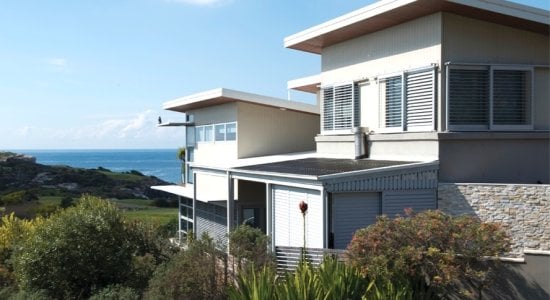Are You an Aussie Landlord? Find Out How to Avoid the Massive $12,000 Fine in the Latest AirBnB Crackdown!
- Replies 6
The picturesque coastal town of Byron Bay, a jewel in the crown of Australia's tourism destinations, has long been a haven for holidaymakers seeking sun, surf, and a laid-back lifestyle. However, the increasing popularity of short-term holiday rentals, particularly through platforms like Airbnb, has led to significant changes in local legislation that could hit landlords right in the wallet.
As of today, Byron Bay homeowners are facing stringent new regulations that limit the leasing of their properties as short-term holiday rentals to just 60 days per calendar year. This move, aimed at addressing the shortage of long-term rental properties and the broader challenges of the property market in the Byron Shire, could see non-compliant landlords slapped with fines of up to $12,000.
The Byron Shire, part of the NSW Northern Rivers region, has seen a surge in investors buying properties with the sole intention of turning them into lucrative holiday lets. This trend has exacerbated the housing crisis for locals, prompting the council to take decisive action. Mayor Michael Lyon has been vocal about the need for change, citing studies that suggest up to 35% of homeowners would alter their rental strategies in light of the cap, with many considering selling or switching to long-term rentals.

The implications of this policy are far-reaching. Not only does it aim to increase the availability of affordable housing, but it also seeks to distribute economic benefits more evenly throughout the community. According to Mayor Lyon, residential housing offers greater year-round economic and social advantages compared to commercial holiday rentals.
From today, owners of short-term rental accommodation (STRA) must adhere to the 60-day cap or face the consequences. The council has already demonstrated its commitment to enforcement, having recently issued $12,000 in fines for breaches of the previous 180-day cap. A register is being developed in collaboration with the state government to ensure compliance and accurate reporting of stay data, with major booking platforms like Airbnb and Stayz expected to integrate seamlessly.
While the council champions the positive impact on the community, particularly for those struggling to find stable housing, critics warn of potential damage to the tourism sector. Byron Bay attracts over two million visitors annually, and the tourism industry is a vital economic pillar for the region. Michael Crosby, Head of Public Policy for Airbnb Australia and New Zealand, has expressed concerns that the new rules will limit affordable accommodation options for tourists, potentially harming local businesses and jobs.
Interestingly, not all areas of Byron Bay will be subject to the new restrictions. Certain parts of the town, including the affluent Wategos Beach area, will be exempt from the cap, raising questions about the fairness and consistency of the policy.
The housing crisis in Byron Bay is stark, with a recent study highlighting almost 350 people sleeping rough in the town, a figure that has risen by 16% year on year. This is in stark contrast to the City of Sydney, which reported 208 rough sleepers in a population over 230,000.
For Aussie landlords in Byron Bay, the message is clear: it's time to reassess your rental strategies. The new regulations are not just about avoiding hefty fines; they're about contributing to the sustainability and well-being of the community. If you're an affected property owner, consider the long-term rental market or ensure you're compliant with the 60-day cap to avoid penalties.
 As members of the Seniors Discount Club, we understand the importance of community and the need to balance economic interests with social responsibility. We encourage you to share your thoughts and experiences on this topic. Have you been affected by the new regulations in Byron Bay? Do you believe these measures will benefit the local community, or do you foresee a negative impact on tourism? Join the conversation in the comments below, and let's discuss the future of holiday rentals in our beloved travel hotspots.
As members of the Seniors Discount Club, we understand the importance of community and the need to balance economic interests with social responsibility. We encourage you to share your thoughts and experiences on this topic. Have you been affected by the new regulations in Byron Bay? Do you believe these measures will benefit the local community, or do you foresee a negative impact on tourism? Join the conversation in the comments below, and let's discuss the future of holiday rentals in our beloved travel hotspots.
As of today, Byron Bay homeowners are facing stringent new regulations that limit the leasing of their properties as short-term holiday rentals to just 60 days per calendar year. This move, aimed at addressing the shortage of long-term rental properties and the broader challenges of the property market in the Byron Shire, could see non-compliant landlords slapped with fines of up to $12,000.
The Byron Shire, part of the NSW Northern Rivers region, has seen a surge in investors buying properties with the sole intention of turning them into lucrative holiday lets. This trend has exacerbated the housing crisis for locals, prompting the council to take decisive action. Mayor Michael Lyon has been vocal about the need for change, citing studies that suggest up to 35% of homeowners would alter their rental strategies in light of the cap, with many considering selling or switching to long-term rentals.

Byron Bay has implemented new rules restricting homeowners from leasing their properties as short-term holiday rentals for a maximum of 60 days per year. Credit: Facebook / Byron Shire Council
The implications of this policy are far-reaching. Not only does it aim to increase the availability of affordable housing, but it also seeks to distribute economic benefits more evenly throughout the community. According to Mayor Lyon, residential housing offers greater year-round economic and social advantages compared to commercial holiday rentals.
From today, owners of short-term rental accommodation (STRA) must adhere to the 60-day cap or face the consequences. The council has already demonstrated its commitment to enforcement, having recently issued $12,000 in fines for breaches of the previous 180-day cap. A register is being developed in collaboration with the state government to ensure compliance and accurate reporting of stay data, with major booking platforms like Airbnb and Stayz expected to integrate seamlessly.
While the council champions the positive impact on the community, particularly for those struggling to find stable housing, critics warn of potential damage to the tourism sector. Byron Bay attracts over two million visitors annually, and the tourism industry is a vital economic pillar for the region. Michael Crosby, Head of Public Policy for Airbnb Australia and New Zealand, has expressed concerns that the new rules will limit affordable accommodation options for tourists, potentially harming local businesses and jobs.
Interestingly, not all areas of Byron Bay will be subject to the new restrictions. Certain parts of the town, including the affluent Wategos Beach area, will be exempt from the cap, raising questions about the fairness and consistency of the policy.
The housing crisis in Byron Bay is stark, with a recent study highlighting almost 350 people sleeping rough in the town, a figure that has risen by 16% year on year. This is in stark contrast to the City of Sydney, which reported 208 rough sleepers in a population over 230,000.
For Aussie landlords in Byron Bay, the message is clear: it's time to reassess your rental strategies. The new regulations are not just about avoiding hefty fines; they're about contributing to the sustainability and well-being of the community. If you're an affected property owner, consider the long-term rental market or ensure you're compliant with the 60-day cap to avoid penalties.
Key Takeaways
- Byron Bay has introduced new rules limiting homeowners to leasing out their properties as short-term holiday rentals for no more than 60 days in a calendar year.
- The measures are in response to the decreasing number of available rentals and the challenging property market, aiming to convert holiday rentals back to long-term residential use.
- Critics of the new rules argue it may negatively impact the tourism industry, but Byron Shire Mayor Michael Lyon highlights the broader economic and social benefits of residential use over commercial.
- Property owners found breaching the new cap on short-term rentals face fines of $12,000, with council officials working on a register for compliance and reporting of stay data.







